Description
About the Book :
THOSE EIGHTEEN DAYS (Novel based on the Saga of the Mahabharatha war, as narrated by Veda Vyasa in that Immortal Epic) ;
. Modern-day sages like Maharshi Sri Aurobindo tell us that such an age of ‘Supra-Mental’ consciousness, (corresponding to our conception of ‘Satya’-Yuga) is around the corner, and Tapas is needed to get it actualised into a reality. Meanwhile modern versions of Duryodhana, Kama, Shakuni among our present day war-mongers, people wedded to the doctrine of ‘kill, conquer, convert and loot’, under military, commercial, technological expansionist programmes, pretending to have religious sanctions for selfish plots, have to be defeated. Will they be ? That is the contextual relevance for the rendering of this part of the story of Mahabharatha in this fiction form !
The Mahabharatha is a never ending story from an idealistic view-point. It will never become stale, or outdated in its message or in its allegorical layers of meaning, political, social or spiritual. That is the difference between Western Epics like the Iliad, Odyssey, Paradise Lost, the Divine Comedy and numerous others and our National Epic which is an encyclopaedia of Dharma, Artha, Kama and Moksha concepts and justly hailed for this reason as the Fifth Veda. The only other National Epic of ours which nears the Mahabharatha in size, complexity of meanings and characters as well as quality, is the Ramayana. These are not merely “tales of Kshatriya war and love” as many in the West once conceived ! They are more. They are our eternal lights in the often enveloping darkness, both self-created and inflicted on us from outside. We read them everyday for inspiration and enlightenment. It is necessary that we understand the scale of enormousness of Evil surrounding us, before we attempt rescuing Good from its clutches. All the portrayal of Evil of all Western writers in Drama or Novel form or in Epic, will come nowhere near the one we come across in the Mahabharatha. But the vision here is not that of a tragedy. Good does triumph over Evil.
Mahabharatha is a text which you will never ‘finish’ understanding. It is a world of stories, each within another in continuous, contextual threads, which only an expert weaver or garland-maker can make. There can be only one Vyasa in this way ! Story, Drama, Metaphysics, Ethics, Moral Codes, Public Administration, guide lines, Jurisprudence, sheer poetry, word-riddles, puzzles, word-pictures-all woven into delectable poetic mould-that is our text, the Mahabharatha! No wonder it has moulded the Hindu character, morals, national ethos, and given us the definite concrete shape of our prized culture and nationality, in all these millenia since it ever came into being. This is, too, the envy of many other nations and societies. In those days of lack of mass-communication or public media like our modem T.V, mobile phones, newspapers or magazines; how artists and savants of Hindu culture could achieve this cultural synthesis and national integration is what we have to wonder at!
Pages : 1018 ; Publisher : Kautilya Institute of National Studies. Original in Kannada, re-written & rendered into English by the author ;
About the Author :
Dr. K.S. Narayanacharya’ was born in a family of Vedic scholars. He was educated at Mysore, (Maharaja’s College and Yuvaraja’s College), earning a BSc (Physics, Chemistry and Mathematics), B.A. (Honours) English, and M.A. (Modern English Literature). Dr KSN is an erudite scholar whose main thrust is towards Nationalism, presented through the eyes of the epics.

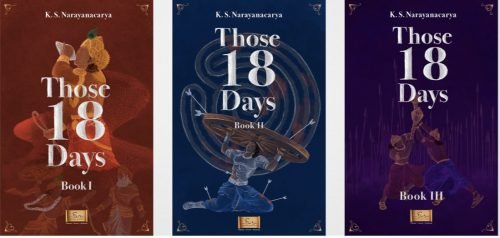

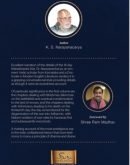

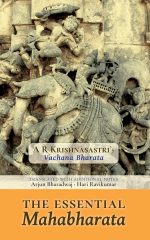
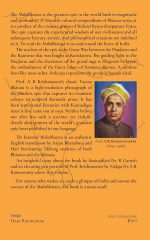
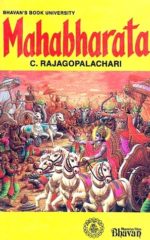
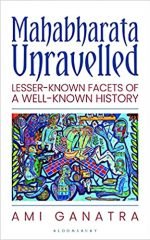
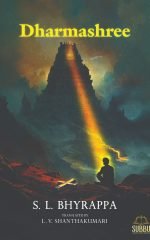
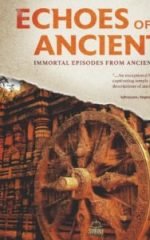
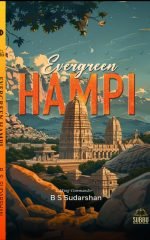
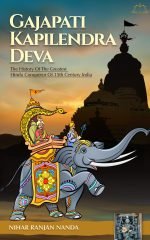
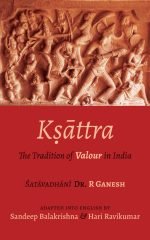
Reviews
There are no reviews yet.